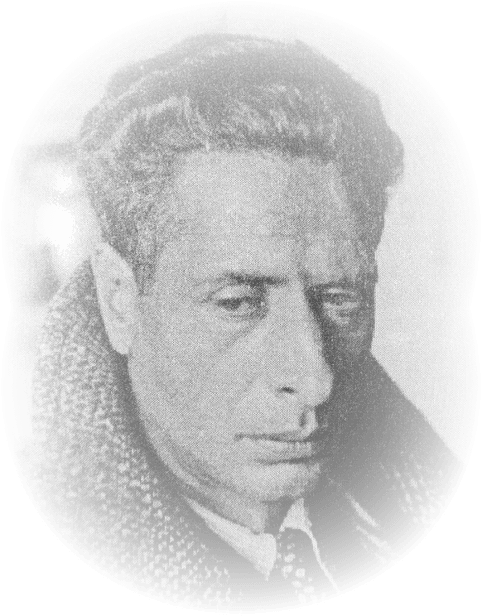
Vadim Andreev’s father was so well known in Russia that when Vadim received his first passport, it said son of writer Leonid Andreev in the occupation field. Not willing to accept the 1917 revolution, the Andreevs left for Finland, where they ended up as emigrants without crossing any borders. Finland became a limitrophe state — in other words, an independent country that had previously been a province of the Russian Empire.
A year later, Leonid Andreev died of heart paralysis. The son left home — his father no longer there — and enlisted in General Miller’s army to fight the Bolsheviks:
On the day of my departure, I climbed up the leaning tower of our house. With a penknife on the soft lead of the roof, I scratched out the date of my departure — October 12, 1920; a year and a month had passed since my father’s death. (Vadim Andreev, The Story of a Journey)
Vadim Andreev learned about the defeat of General Wrangel’s army in Crimea from Marseilles and left for the Caucasus to fight the Reds as part of the Kuban People’s Republic army. But defeat awaited him there as well — followed by Constantinople, a refugee camp, starvation, a Russian lyceum, peddling on the street. That was the first year of wandering.
An encounter in Sofia with Professor Thomas Whittemore, a renowned Byzantine expert and director of the Committee for the Education of Russian Youth in Exile, gave Andreev a new lease on life. Twenty-year-old Andreev burst into Whittemore’s hotel room and, having impressed the professor, received a scholarship to study at the University of Berlin.
For several years in the early 1920s, Berlin was the center of Russian life in emigration. Postwar democracy and the low exchange rate of the German mark attracted both young and old writers. Andreev was already on friendly terms with the younger ones, such as Alexander Ginger, Anna Prismanova, and Bronislaw Sosinski. He also had the chance to meet some well-established writers: Vladimir Mayakovsky, Andrei Bely, Ilya Ehrenburg, and Viktor Shklovsky. But life in Germany started to become disastrously expensive, and in 1924 students from Russia were transferred to study in Paris.
Besides studying and writing, the young poet worked at the Renault factory and was a linotyper and a projectionist. And he longed to return to Russia, unsuccessfully sending requests for the reinstatement of his Soviet citizenship. During the occupation of France, Vadim Andreev became a member of the French Resistance. In 1944, he was arrested and sent to a military prison in Boyardville. Miraculously, the Germans exchanged him for their prisoners instead of executing him.
After the war, Vadim was eager to return home — he was saved by a letter from his younger brother Daniel, ...come as soon as Olechka graduates from Sorbonne. Vadim’s daughter Olechka was a schoolgirl at the time.
A year later, Daniil Andreev, his wife, and his immediate family were arrested and sentenced to 10 years in prison. As for Vadim Andreev, he finally received a Soviet passport but moved with his family to the US. After Stalin’s death, he visited the Soviet Union and met with his released brother — they had not seen each other for forty years! His brother convinced him never to return home.
Vadim Andreev lived in New York and worked for the UN — this gave him and his daughter Olga the opportunity to get the microfilms of Alexander Solzhenitsyn’s manuscripts out of the Soviet Union. Andreev died in Geneva in 1976.
NaIVE|NaIVE

The cards are shuffled by policeman
He sure has aces up his sleeve.
With a passion that’s unlawful
And cheating’s sacred matrimony.
With February’s sluggish breath,
The air is full of tender snow.
The frosty mustache bristles,
Shimmering with a lively glow.
The muse of death flies down to him
And speaks to him of God,
He twirls the card that comes to him.
With mortal flame ignites.
The time is breathless,
Like a man before he jumps,
And the stumbling darkness
Screams and falls down.
And up there, in the attic window,
Indifferently waiting for the dawn,
Hardly pretending to be unsightly
A big and savvy machine gun.